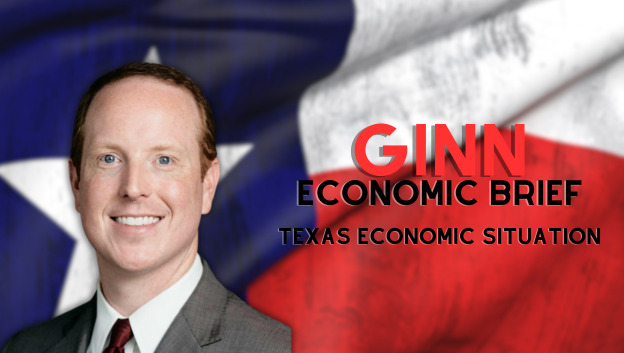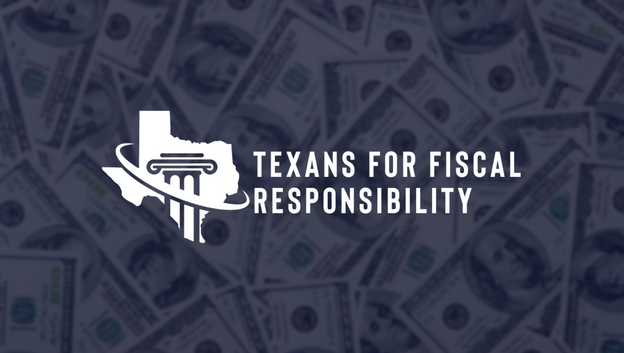
Texas at the Forefront: Leading the Charge but Facing New Challenges
Texas continues to blaze trails in the labor market, with recent data from the Texas Workforce Commission showing a robust addition of over 42,000 jobs and an unemployment rate of 4% in April. This included 41,000 jobs in the productive private sector and 1,100 in the government sector. Coupled with an impressive gain of 306,000 jobs (+2.2%)since last April, these figures underscore Texas’ economic vitality and its role as a leader in the national economy.
However, as other states ramp up their economic policies, especially in red states, and the burdens of federal missteps weigh heavily on Americans, Texas must renew its commitment to pro-growth, limited government principles to maintain its leadership position.
In April, the Lone Star State’s labor force expanded and demonstrated resilience in several key sectors, contributing significantly to the state’s economic dynamism. Employment grew the most in percentage terms over the last year in other services (+6%) and professional and business services (+3.3%), but government (+3.3%) grew too much. This private sector growth is a testament to Texas’ business-friendly environment and its ability to attract and retain top-tier talent and enterprises.
Despite these achievements, there is an emerging need for vigilance as other states begin to adopt reforms that could rival Texas’ appeal.
Nationally, the labor market shows varying degrees of recovery, with some states quickly catching up by implementing aggressive tax cuts and regulatory reforms to support economic growth. Red states like South Carolina (+3.4%), Florida (+2.5%), and Missouri (+2.5%) are thriving, with job growth rates that challenge Texas’ dominance.
Texas has long been a bastion of economic freedom, which has fostered an environment where businesses and individuals can thrive. However, the state now faces the dual challenge of maintaining its competitive edge while also addressing the economic pressures exerted by federal policies and economic management—or mismanagement—by the Biden administration, Congress, and the Federal Reserve. These challenges include inflationary pressures, federal spending levels, and monetary policies that have left many Texans feeling the pinch.
Policy adjustments are essential to address these challenges and keep Texas at the forefront of job creation.
First, Texas must return to limited government. Reinforcing and expanding upon policies that have proven successful, such as reducing regulatory burdens and further limiting state and local government spending, should be a priority.
As other states enhance their economic policies, Texas must not rest on its laurels but should strive for even bolder reforms to sustain its economic leadership. This includes strengthening the state’s constitutional and statutory spending limits consistent with the average taxpayer’s ability to pay for government spending.
The best path would be to limit the entire budget or at least all state funds, excluding federal funds, with a maximum rate of population growth plus inflation and a two-thirds vote to exceed it. This limitation should also cover local governments, which has helped keep Colorado’s state and local spending in check, even in a blue state, with its Taxpayer’s Bill of Rights.
Additionally, the state’s approach to taxation needs a radical rethink. The overwhelming support for eliminating property taxes reflects a broader dissatisfaction with traditional tax structures that penalize success and deter investment.
A bold approach would be to transition from property taxes to a more equitable tax system by limiting state and local government spending and using surpluses to lower property taxes until they are eliminated in about a decade. The state would use its surpluses to buy down the school district M&O property tax rates, and local governments would use their surpluses to reduce their property tax rates.
This approach would support substantial economic growth and a path for people to finally own their home instead of renting from the government forever by being forced to pay these taxes whether the mortgage is paid off.
Moreover, as Texas navigates these fiscal reforms, there should be key reforms and reductions where necessary to wasteful government programs and agencies. Given the excessive spending by the state legislature during the last session, with more than a 20% increase in appropriations–the largest in Texas history- there is a need to cut government spending in the next session rather than just limit the growth.
This should include providing universal school choice with education savings accounts that should replace the state’s school finance formulas. Doing so would help to empower parents to do what’s best for their kids’ education while reducing the burden on taxpayers because this could dramatically reduce spending.
While Texas continues to lead in job growth and reach record highs, the path forward requires adherence to tried-and-tested economic principles and a willingness to innovate and adapt to changing economic landscapes. Texas can maintain and strengthen its position as an economic powerhouse by fostering a more favorable business climate, eliminating corporate welfare, reducing unnecessary governmental interference, and revamping its tax system.
As other states accelerate their economic reforms, Texas must lead by example, championing policies that ensure prosperity and freedom. The call to action is clear: Texas must stop passing progressive fiscal policies and ensure its policies promote growth and provide a bulwark against the economic challenges of our times.
Texans for Fiscal Responsibility relies on the support of private donors across the Lone Star State in order to promote fiscal responsibility and pro-taxpayer government in Texas. Please consider supporting our efforts! Thank you!
Get The Fiscal Note, our free weekly roll-up on all the current events that could impact your wallet. Subscribe today!




